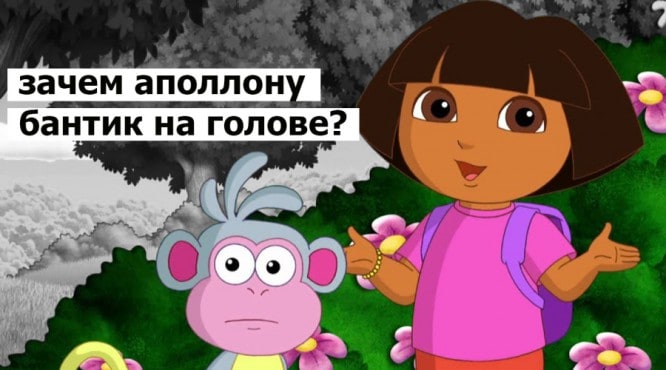I want to change my profession and become a designer: where to run and what to do
I want to change my profession and become a designer: where to run and what to do
The main thing is not to run, but to think and choose the best for yourself.
Now, with the light hand of advertisers, the world is replete with opportunities to find yourself in your favorite business in a couple of clicks.
When I started my design education adventure, targeting experts pounced on my feed, promising to make me a guru in a week. Doubtful teachers caused depression, I did not plan to go to university for the second time for five years. It was impossible to understand where to start and what to count on, whether it was necessary to spend money on it. I think these questions are relevant for everyone who is hungry for change.
My story will help you save time, nerves and make a choice much faster.
My mistakes
Some are purposefully looking for themselves, not finding satisfaction in any business. Others after thirty realize that they are doing the wrong thing. It seemed that everything was simpler for me: in the third year of the university I realized that I wanted a completely different specialty.
As a child, the public strongly kicked me to drawing, but after graduating from art school I wanted to forget the visual arts like a bad dream. And at a conscious age, she accidentally wandered into a painting lesson and fell in love again. I was scared to quit the university.

With all my love for the alma mater, this is a wasted time and my first mistake.
After graduation and all sorts of experiments with work, I realized that I needed a free schedule: with a diploma in cognitive science, a copywriting portfolio and an interest in marketing, I took up SMM. I decided to find application in graphic design for my craving for beauty. I was horrified by the quality of most of the advertised courses and thought that I could draw up a curriculum for myself: go to narrowly focused classes, look for individual teachers, and educate myself.
And this approach was a mistake. As a result, there are gaps in basic knowledge, a huge waste of time looking for the right one, the lack of a professional community around and demotivation.

The importance of education, in principle, is a controversial issue, but still knowledge and skills must be taken from somewhere.
My Universities
Additional education in Russia is frankly poorly developed. There is an ossified system: from school to bachelor’s degree, from bachelor’s to master’s degree, then work and retirement. It is difficult to bend the system to fit your needs, and most commercial express courses do not claim depth of knowledge. I tried a lot of things and in my struggle with the educational system I went through all the stages of grief along the Kübler-Ross.
Negation
The first point on the route was an art school: I went there for evening courses for applicants and convinced myself that the base in drawing and composition would save me. But to a greater or lesser extent, such courses are designed specifically for admission. I was lucky with one teacher, the other was engaged in purely training for the exam. I reassured myself that this is useful in its own way. And then she left.
Anger
I decided to look for private courses in basic art disciplines: not for applicants, but for mere mortals. There, the teacher stubbornly suggested taking blue paper instead of gray to unleash creativity. And a couple of times he called the head of Apollo Venus.

I want to believe there are good private art courses somewhere. You can find them either by acquaintance or with the help of otherworldly forces. And I, of course, was furious.
Bargain
In a rage, the person is vulnerable, and I almost succumbed to inept, active sales – this time, it was an online course on graphic editors. In VK I was lured to a trial lesson. The impressions from the broadcast are strange: the presenter could neither draw, nor speak, nor subjugate the wonders of Illustrator to his will. In moments of despair, I wanted to bargain with myself: I thought that it was me who was finding fault, that they (probably) have some clients, that it couldn’t be that bad … No, everything was bad.
Any course met some goal of its own: go to university, experience catharsis in the creative process, or draw a logo for a friend with an ingenious business plan on your knee. My idea of typing the necessary lessons in different places was not viable.
…
Depression
I didn’t have time to play enough with online education, so I decided to subscribe to distance courses from foreign universities. If you know English, this is a good thing: you can listen to interesting speakers from all over the world, sometimes even for free. I liked the format when it came to theoretical knowledge. But comprehending the practice online was dreary: the work was checked for a long time, and the lack of live acquaintances seemed to be a brake on development.
Adoption
For half a year I attended separate courses offline and online in order to have the most free training schedule. The work of an SMM manager, although it seems flexible in time, is often simply unpredictable: you need to be present at the client’s events, which are organized at any time of the day or night. But I spent my study time completely ineffectively and realized that I would have to surrender to a university.
As a result, I went to professional retraining courses. On average, they last from a year to three years, there are daytime and evening, but their variety is not so great: in St. Petersburg, I considered only three options.
Curricula, by the way, are completely different everywhere: society has not yet come to a consensus whether a designer needs to be able to draw, whether he needs an art history and an understanding of how advertising works. And the set of software that is used varies greatly.
…
You cannot expect that the courses will give everything, everything you need, but the program had its own logic and met my expectations. I even found a couple of enthusiastic teachers with burning eyes, which cannot but inspire.

My delights and complaints
Feeling like a student for the second time is a great pleasure! Although student listeners are not given out and no one notes attendance, you still feel a little like a freshman. Here’s what made me happy:
- The teaching staff in universities is much cooler than in random institutions.
- The community is motivated, unlike the majority of eighteen-year-old students.
- The community is diverse and potentially useful for networking.
- Since everyone gets a second higher education, the program includes only new and necessary things, without general education disciplines.
- The atmosphere is very special. People spend the night at the university to study in silence, they come to exams on weekends with their children. The people have a job, a family, a lot of things to do, but everyone learns new things with manic persistence, it charges with positive energy.

And the cons are as follows:
- The program is limited: it is simply impossible to fit everything into a tight time frame.
- The audience has a different background. Someone has already worked in related fields or has an art education and is wasting time in introductory lessons. Others are completely out of topic and slow down the process.
- The program is rich, every missed lecture or misunderstood task is a significant gap. And for adult students, something constantly prevents them from learning systematically.
- My courses start at 18:30, sometimes even earlier. Considering the “owl” schedule of many offices until 7 pm or 8 pm, not all work can be combined with study.
My typology of adult students
Who are all these people? The idea of changing careers is visited by different people under completely different circumstances.
Some want creative freedom, others – to earn more, someone has a constant craving for novelty, someone is simply bored on maternity leave or retirement. I conventionally divided everyone into types:
- Romantics, wanting to do something beautiful. These are office workers tired of offices, mothers on maternity leave, or recent university graduates dissatisfied with life. They are looking for freedom of expression and get depressed from the postulate of the eternal rightness of the client.
- Excellent studentswho just love to learn. It is surprising, but I have met people over thirty who have changed five or seven universities. What motivates them and what they want – I have no idea.
- Savvy artists, the increased congestion is observed at the web design department. They want to be IT specialists, but only so as not to understand programming.
- Perfectionists: They have been drawing for twenty years, they know all the magic buttons in graphic editors and periodically correct the teachers. They came to the courses just in case.
- Amateurs-enthusiasts, which every new knowledge run to put into practice, with jambs, but with an inexhaustible positive. Perhaps they had a bunch of their own projects before they even started their studies. Perhaps in the modern world, this is the most viable type.
My findings
Of course, the situation when you have been doing the same thing from the first year of the university (or better from school or from kindergarten) is ideal. But this is a rarity, a modern person manages to change several professions in his life. However, I know examples when, after graduating, people do not change jobs. It is difficult to give up what you have devoted many years to. Here recent graduates have an advantage: the life of a young specialist is unstable and disposes of all sorts of adventures.

Many go to creative professions for the sake of being remote. I myself now take orders for freelancing, but in a few months I will finally be given a diploma, and office work will be on my plans. I think this is the right stage for development.
Source: TexTerra
…

